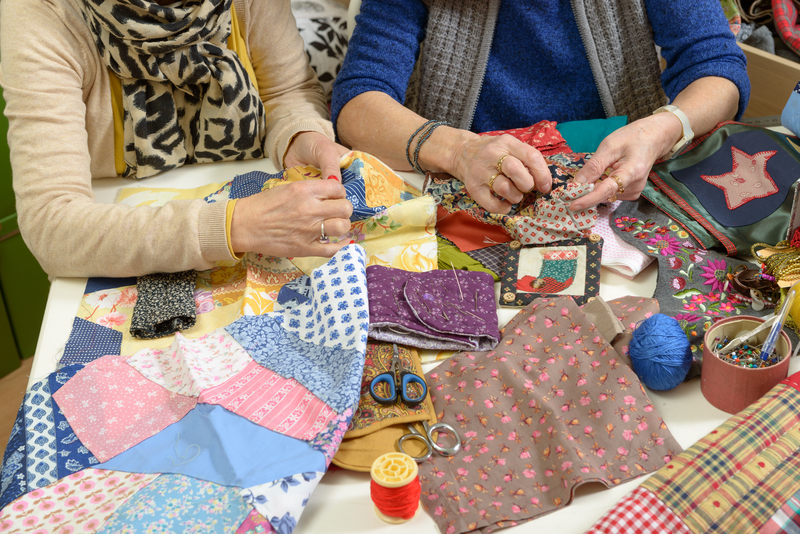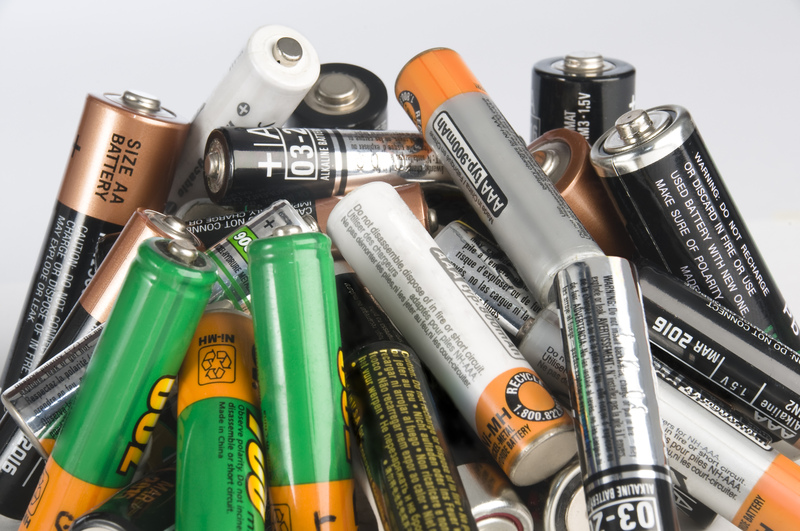How to Declutter Your Kitchen and Recycle Pots and Pans Safely
Your kitchen is often the heart of your home, but over time, it can easily become overwhelmed with unused utensils, old pans, and expired food items. A cluttered kitchen not only hinders your cooking experience but may also affect your well-being. If you're ready to make a fresh start, decluttering your kitchen and learning how to recycle old pots and pans safely is the perfect solution. In this comprehensive guide, we'll provide a step-by-step approach to clearing out your space, making ethical disposal choices, and transforming your kitchen into an efficient culinary haven.
Why Decluttering Your Kitchen Matters
An organized kitchen offers more than just visual appeal. A clean, orderly space improves efficiency, minimizes stress, and reduces food waste. According to organizing experts, purging and organizing your kitchen leads to healthier choices, faster meal prep, and increased motivation to cook at home. Plus, responsibly recycling kitchen pots and pans can help protect the environment from unnecessary landfill waste.
Key Benefits of Decluttering the Kitchen:
- Saves Time: Quicker meal prep with streamlined access to tools.
- Reduces Stress: Less mess leads to a calmer, more enjoyable cooking space.
- Minimizes Waste: Knowing what you have prevents unnecessary purchases and food spoilage.
- Supports Sustainability: Proper recycling limits the environmental impact of waste materials like aluminum, stainless steel, and non-stick coatings.
- Enhances Home Value: A tidy kitchen is a major selling point for prospective home buyers.

Step-by-Step Guide to Decluttering Your Kitchen
Before you can recycle old kitchen pots and pans, you'll need to systematically go through your kitchen, assessing what you truly use and love. Here's how you can tackle this task efficiently:
1. Set Aside the Necessary Time
- Start small. Focus on one cupboard or drawer at a time.
- Dedicate a block of uninterrupted time--usually, 2-4 hours is ample for a typical home kitchen.
2. Clear Out One Area at a Time
- Take everything out from the selected section--be it utensils, cookware, or pantry items.
- Spread items on a clean table or countertop to inspect what you own.
3. Sort Your Belongings
- Create four piles: Keep, Donate, Sell, and Recycle/Dispose.
- Ask yourself, "When was the last time I used this?" If you haven't used a pot, pan, or gadget in a year (and it has no special sentimental value), consider removing it from your kitchen.
4. Assess Pots and Pans
- Check usability: Is the coating flaking? Are handles loose? Is the pan warped?
- Nonstick pans: If the coating is scratched or worn, it's safer to let it go.
- Retain only what you use and love. Most households only need two frying pans, two saucepans (various sizes), and one or two specialty items.
5. Clean and Organize
- Before putting items back, thoroughly clean shelves and drawers.
- Organize remaining items by function--daily use in easy-to-reach spots; specialty tools higher up or at the back.
How to Dispose of and Recycle Pots and Pans Safely
Now that you've separated your unwanted cookware, it's time to consider the best method for disposing of or recycling legacy items. Not all pots and pans are recyclable through curbside programs, and improper disposal may have environmental consequences.
Why Is It Important to Recycle Pots and Pans?
Cookware is made from materials like aluminum, stainless steel, copper, or nonstick coatings, all of which have different recycling requirements. Landfilling metal items contributes to resource depletion and increased landfill mass. Recycling old pots and pans keeps valuable resources in circulation and reduces pollution.
What Types of Cookware Can Be Recycled?
- Stainless steel pots and pans
- Aluminum cookware
- Copper-bottomed cookware
- Cast iron pans
- Some types of ceramic and enameled pans
Nonstick (Teflon-coated) pans, however, require special handling and cannot usually be placed in typical scrap metal recycling bins.
Proven Methods for Recycling Old Pots and Pans
1. Scrap Metal Recycling Centers
- Find a local scrap metal recycling facility near you. Metals like aluminum, steel, and copper are all valuable.
- Remove any non-metal parts, such as plastic handles or glass lids.
- Check with the center about specific requirements, especially for nonstick-coated items.
2. Municipal Recycling Programs
- Some cities accept metal cookware at local recycling depots or household waste recycling centers.
- Read your local guidelines to confirm whether pots and pans are accepted at curbside or require drop-off.
3. Manufacturer Take-Back Programs
- Certain brands offer take-back programs for their cookware.
- Examples include brands like TerraCycle's partnership with GreenPan, which allows you to mail in unusable pots and pans for responsible recycling.
4. Donation and Reuse
- If your cookware is still in good condition, consider donating it to local shelters, food banks, or thrift shops.
- You can also check online groups such as Freecycle, Facebook Marketplace, or Buy Nothing groups.
5. Creative Repurposing
- Repurpose old pots and pans as planters, storage bins, birdbaths, or decorative art!
- Visit DIY websites for inspiration on upcycling cookware for home or garden projects.
How to Safely Recycle Nonstick Pans
Nonstick pans, often made with PTFE (Teflon) coatings, must be handled carefully as the coating can be hazardous if incinerated or improperly processed.
Safe Steps for Recycling Nonstick Cookware
- Contact the manufacturer to see if they offer a recycling/take-back option.
- Ask your local recycling center if they accept nonstick-coated items--some require you to remove the coating first (attempt this only if instructed, as it may not be safe for all coatings).
- If donation and recycling aren't options, dispose of them through your city's household hazardous waste collection events.
Eco-Friendly Kitchen Decluttering: Additional Tips
To make the most of your kitchen decluttering journey, try these sustainable practices:
- Use biodegradable cleaning products during your deep clean to reduce chemical runoff.
- Line containers with old newspapers instead of plastic liners for transport to recycling centers.
- Organize your "keep" pile by frequency of use, to maintain a clutter-free space in the future.
- Set up a bin or basket in your pantry for ongoing donation of unused food items and kitchenware.
Maintaining a Clutter-Free and Green Kitchen
Develop Better Buying and Storage Habits
- Adopt a "one in, one out" rule to prevent accumulation of duplicate items.
- Buy quality over quantity. High-quality pots and pans last longer and are more likely to be repairable or recyclable.
- Store kitchen essentials within easy reach and rotate stock in the pantry to prevent food waste.
Exploring Alternatives to Traditional Cookware
When replacing old items, look for sustainable cookware options made from recycled metals, or with eco-friendly, PFOA-free nonstick coatings. Brands like GreenPan, Lodge, and All-Clad now offer greener alternatives designed for longevity and recyclability.
Quick Maintenance Tips for Pots and Pans
- Hand-wash when possible to prolong life, especially for nonstick or wooden-handled pieces.
- Avoid metal utensils on coated cookware to prevent premature wear.
- Store lids separately to prevent scratches and warping.

Frequently Asked Questions
Can I put old pots and pans in my curbside recycling bin?
Usually, no. Most curbside recycling programs do not accept cookware due to mixed materials or nonstick coatings. Always check with your local municipality.
What should I do with cast iron pans I no longer need?
If they are in good condition, donate or sell them. Broken or heavily rusted pans are accepted at most metal scrap yards.
Are old nonstick pans dangerous to use?
Nonstick pans with flaking, scratched, or worn coatings should not be used, as releasing chemicals could pose health concerns.
Can I recycle ceramic and glass cookware?
Ceramic and glass are tricky to recycle and aren't accepted at metal recyling centers. Consult with specialty recyclers, or inquire about local secondhand stores for donation.
Conclusion: Transform Your Kitchen, Protect the Planet
Decluttering your kitchen is one of the most rewarding home organizing projects. By following these step-by-step decluttering tips and applying eco-friendly principles, you'll create an inviting, functional kitchen space--and ensure your old pots and pans are recycled safely. Responsible disposal and recycling are small but significant steps in reducing your household's impact on the planet. Start your kitchen declutter today, donate or recycle what you don't need, and enjoy a refreshed, green cooking experience!
Ready for a cleaner, greener kitchen? Share your decluttering tips or recycling ideas in the comments below!